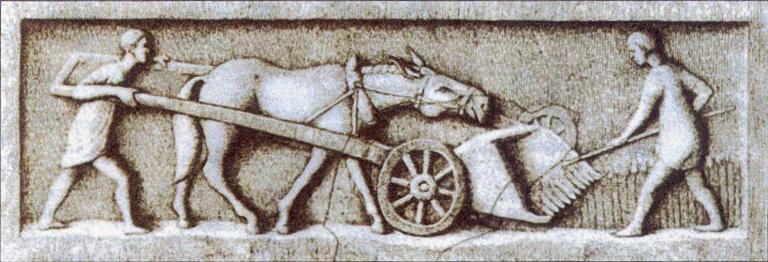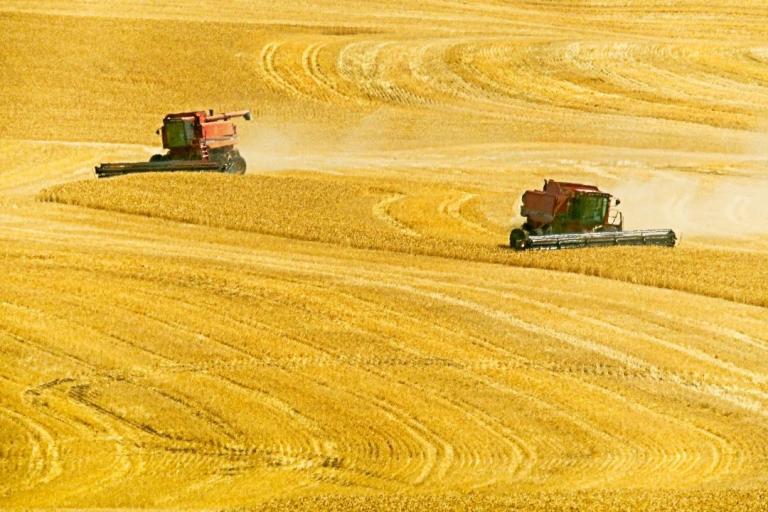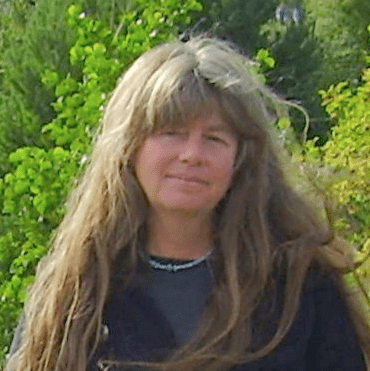Lughnasadh as a harvest festival is such a simple idea. Comfortable images of James Frazier’s corn maiden, of quaint harvest customs, and fancy loaves of bread gracing the pot-luck table. As Celtic Pagans, our particular brand of simple idea is that this is a festival instituted by the god Lugh in honour of His foster mother Tailtiu, who died clearing land for agriculture. Lughnasadh games, such as horse racing, are a memory of the games held as part of Tailtiu’s funeral celebrations. Yet another neat connection to human progress through agriculture.

Tailtiu, the scholars say, must be a kind of sovereignty goddess. Like Macha, another goddess associated with agriculture and clearing land, with horse racing, and late summer fairs.
Most of us now are city folk who have never been closer to a grain field than perhaps driving past one in a car. Our ideas of agriculture run from the romance of plough horse teams and lines of scythe-wielding peasants working in timeless unison, through to the modern ideal of the “small family farm”, or the modern horror of intensive monoculture wheat fields doused in chemicals. The closest we come to a harvest is trying to figure out what to do with all that zucchini we grew, or shopping at the local farmers’ market.
These days, some of us are questioning all this. We eat wheat-free or low carb diets and avoid grain fed meat in favour of pasture-reared. We buy organic. We love permaculture. All steps in the right direction. Still, every bite we take seems to be a compromise, a balancing act between staying alive, enjoying ourselves, and trying not to destroy our ecosystem in the process.
We are being forced, if not to look at the big picture too long and hard, at least to acknowledge that a big picture exists. All things really are connected. We cannot go on as we have. Even if climate catastrophe disappeared tomorrow, the sheer weight of our numbers is on the verge of destroying our ecosystems. Death by a thousand cuts. Death by eight billion births. We couldn’t have done it without agriculture.

As you may know, the story of Tailtiu is not unique in Irish lore. Macha, wife of Nemhed, died on another plain. They say She died of sorrow, or something like it, on one of the many plains cleared by Nemhed. Carmun, too, died in similar circumstances. There’s a pattern here. A pattern of that inexorable thing we call human progress, the march of the cleared plain, the march of agriculture which becomes midwife to the industrial revolution. And here we are. Eight billion of us, wondering what to do next.
It was probably at Lughnasadh when Macha, wife of Cruinniuc, ran Her race at an Ulster fair. Macha, nine months pregnant. Macha, come to bring all good things to the house of Her chosen husband. She was treated shoddily by a husband who couldn’t keep a simple promise. By a king who lacked a sense of natural fairness. By a whole host of thrill seekers with no compassion at all for a woman in labour.
Macha ran Her race in spite of the labour pangs. She won Her race, bore Her twins, and what did the people of Ulster have to show for it? Her curse. What did she have to show for it? Some say she died, others that she went back to the otherworld, taking her babes with her. Tailtiu, in thrall to the men of Ireland, cleared the plain and died of exhaustion. And all she got was these lousy funeral games – as they say.
There’s a pattern here. Things don’t go well for Macha, or for Tailtiu, or Rhiannon, or Branwen. I wouldn’t want to be a sovereignty goddess. I wouldn’t want to be the land.

What if I told you that the whole concept of sovereignty was our own Pagan Indo-European patriarchy, our dominionism, our Genesis 1:28 (Which in case you don’t know is the one that goes: And God blessed them, and God said unto them, Be fruitful, and multiply, and replenish the earth, and subdue it: and have dominion over the fish of the sea, and over the fowl of the air, and over every living thing that moveth upon the earth.).
What is this Celtic, or Indo-European, concept of sovereignty, if not a story to make the destruction of nature for the use of the ever-growing tribe more palatable? The story of birth, death, regeneration is truly mother nature’s story. She is red in tooth and claw. It’s not eat or be eaten, so much as eat and be eaten. It’s the natural order of things.
What isn’t so natural is our idea that the king marries that land, and so holds it for his people, in order to plough it and make it pregnant with grain, or potatoes, or even zucchini. Women are beginning to stand up and say “no” to being treated like a field for the ploughing. We are beginning to take back our sovereignty. But who will stand up for the land and Her sovereignty?

That’s the message which glares at me from every sovereignty tale. We knew we were crossing a line when we put the plough to our mother’s breast. Like all slightly guilty parties, we needed to tell ourselves a story that put things in a better light. So instead of calling it murder, or rape, we called it marriage. We called it ownership. Now, we are beginning to wake up to the nightmare of our mistake.
So, don’t mind me, being a bit of a killjoy over here in my corner. I’m not Macha. I can’t curse you for nine generations, but I will say this: If we start now, within nine generations we might be able to put this right. Give the sovereignty back to the land, and salvage something.
You can support Kris Hughes on Patreon and follow her blog at Go Deeper.


















